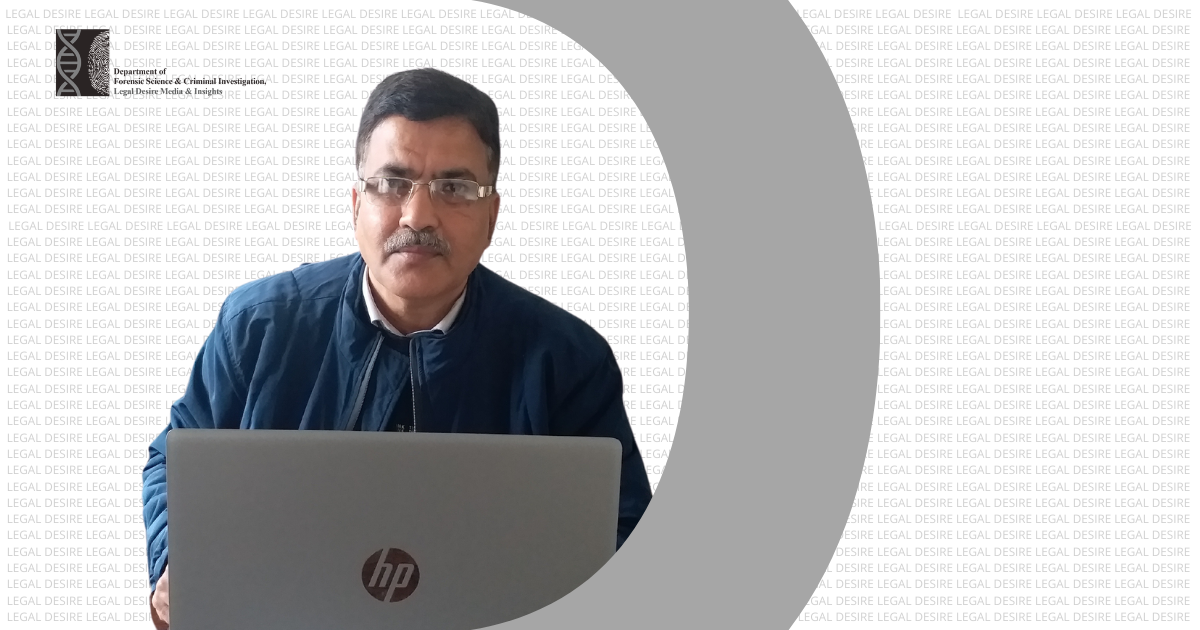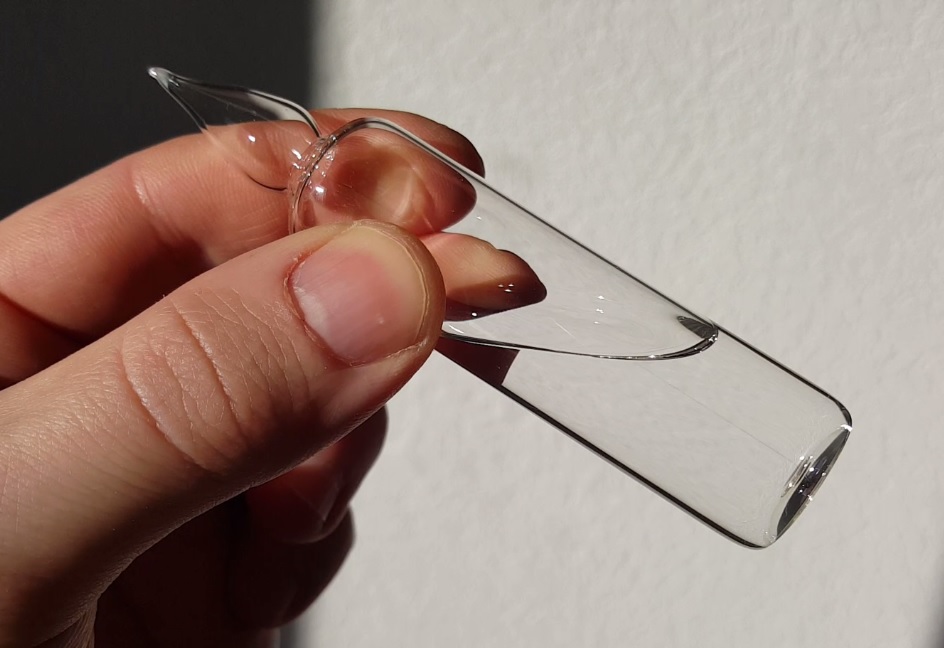Now Reading: In Conversation with Dr. Rajesh Verma, Deputy Director, Regional Forensic Science Laboratory [RFSL], Mandi, Himachal Pradesh, India
-
01
In Conversation with Dr. Rajesh Verma, Deputy Director, Regional Forensic Science Laboratory [RFSL], Mandi, Himachal Pradesh, India

In Conversation with Dr. Rajesh Verma, Deputy Director, Regional Forensic Science Laboratory [RFSL], Mandi, Himachal Pradesh, India
Dr. Rajesh Verma is the Deputy Director of Regional Forensic Science Laboratory at Mandi, Himachal Pradesh. He has a doctorate degree in Physics from IIT, Roorkee. He is into research since early nineties and has over 30 years of experience in research and analytical work. He has published and presented over 30 papers in various international and national journals of repute and various conferences. He joined forensic profession in the year 2000 as Assistant Director and headed the Physics & Ballistics division of the State Forensic Science Laboratory, Himachal Pradesh. After working for about 11 years as Assistant Director, he was selected to head the Regional Forensic Science Laboratory at Mandi as Deputy Director. In addition to his administrative duties, Dr. Verma also pursued his interest in research and interest in statistics and its applications to Forensic Science. An understanding of the various issued in Forensic Science and is keen on using statistics and computers to improve the practice. He has also in using his capabilities in the development of automatic speaker identification and facial identification system. He is currently engaged in development of state-of-the-art Multimedia Forensic Facilities in Himachal Pradesh.
- What inspired you to join the Forensic domain during those early days, and what is the driving force that lets you to stick onto this?
In our times, there were not many CSI shows and we were not very much aware of what exactly forensic science is. I would say providence led me to profession. But with the passage of time, I am now convinced that forensic science is a very noble profession, and I am getting more and more convinced that I was destined to be here. In forensic profession people often are disappointed with not getting enough and the lack of promotional avenues, but that is a result of the heightened expectations of professionals, and people in general from the forensic profession, that is a fallout of the “CSI effect”.
- In modern times, the traditional crimes have evolved tremendously. In comparison to that, how have the investigation procedures evolved with that?
First, we need to keep in mind the difference between the forensic laboratory work and investigation. Investigation is the domain of the police. I often tell people not to confuse investigation with laboratory work, and this happens because they have a wrong concept that investigators and lab professional are same. The forensic experts sometimes also suffer from this role bias and try to infringe in the domain of the police, partly, because many of the forensic laboratories in India are under police control. Now, coming to your question, investigation has kept pace with the changing crime techniques, but not many forensic professionals are involved in this investigation, they only corroborate the investigation. As an example, in cyber crime investigation the police are competent to crack the cases, but the role of forensic analysts is confined to the analysis of the seized evidence.
- With new advancements in technologies every now and then, how well equipped are the Forensic labs? How does a good lab infrastructure help the investigation?
There is no paucity of equipment and technology in the forensic laboratories nowadays. But there is a dire need of upgrading the skills of the forensic professionals, through training and continuing education, that unfortunately lacks in our country. There is also not any agency that certifies the competence of the examiners. For a successful investigation, the investigation professionals must be aware of the capabilities and limitations of the techniques available with the forensic laboratories, so that the investigation is kept on track. They should be able to pick the right evidence in optimum quantity, so as not to burden the forensic laboratories, as these laboratories are already facing backlogs due to increased number of cases and the stagnant human resources.
- The key role in any investigation of case is the technical expertise of the field officers. What are the things to be taken in consideration while dealing with the evidence from the crime scene to the lab?
Documentation of the crime scene is most important. Documentation involving notes, sketches, photographs and video of the crime scene and the evidence therein. Proper documentation of the chain of custody is also important. Regardless of the technology used in the laboratory and the scientific expertise of the scientists, most of the acquittals take place because of the doubts casted on the integrity of the evidence.
- There is a lack of discipline specific forensic science standards like NIST and OSAC in India. Should all Indian Forensic Science Labs follow a single standard or compliance while investigating any case or evidence?
A single standard is not necessary as long as the methods employed are based on sound scientific methodology and are validated prior to use. Laboratory developed methods can be used provided these are subjected to peer review and are accepted. According to the Daubert criteria of evidence admissibility, the potential error rates and limitations must also be known. Unfortunately, in our country there are not many peer reviewed journals in forensic science, but that should not deter the scientists to work and publish in international journals.
- What is the need and importance of Research & Development in forensic science? Should the present curriculum related to forensic & investigative sciences stress more on R&D rather than just making them industry ready?
R&D is the need of the hour. The forensic curriculum should prepare the students to take up this challenge. Should inculcate the spirit of inquiry and logical thinking in the students. The forensic profession needs good communication skills in addition to some training in stress management. The students need to have a research aptitude and it is a common requirement of both the industry or research. I think there is a very fuzzy line between research and forensic practice.
- In what ways can the R&D help in tackling the issues related to public safety & forensics?
Modern techniques like crime mapping and prediction can be helpful in investigation for that we need to collect data related to crimes and then use computers to analyse the same. There is an emerging discipline in forensic science, called forensic data science, that can be very helpful for public safety. One major issue that is of immediate concern in forensic science is the cognitive bias, that needs to be understood and mitigated so that the reports are reliable. There is also a need for more objective forensic reports that acknowledge the uncertainties in forensic science, and quantify this uncertainty. That calls for more stress on use of probability and statistics in forensic case work.
- There are many Institutes of National Importance like IITs, NITs, AIIMS, IIMs, NFSU, RRU in India. How can these premier higher education institutes help in upgrading or setting up of state-of-the-art forensic facilities, capacity building & R&D in the Forensic domain?
Forensic professionals need to team up with experts from these institutes. Most of the professional are overburdened by the casework and express inability to take up research work. But they can definitely provide the domain knowledge for such research and can be active participants in collaborative research.
- The researchers in the Forensic Domain complain that there is a huge gap between R&D and its actual implementation in everyday life. The Forensic Labs & professionals in India are reluctant to avail the newer techniques discovered by intensive or extensive research methodologies, whereas quicker to adapt and accept the techniques or technologies developed abroad. What are your views on this?
The old mindset of the professional is responsible for this. They need to upgrade their skills and adapt to the changing scenario of forensic science in the world.
10. Most of the Forensic Labs in India & abroad are backlogged with thousands of old cases while new cases are accumulated on a daily basis. What is the reason behind this and what steps are or should be taken to tackle this issue in your opinion?
Lack of human resources is one reason; the other is lack of awareness in investigators about the right amount of evidence items to be submitted to the lab. The first can be addressed by the use of computers and information technology and modern laboratory management principals. Further the investigators have to have a familiarity with the forensic setup, the techniques used and their limitations. Continuous training in forensic concepts should be imparted to them.
- How has the Covid-19 situation affected the Forensic field? What all hardships are faced by Forensic Labs in India while handling a case or getting a new one?
The situation is unfortunate and there has been an atmosphere of general apprehension. But normal precautions can help as forensic science is not new to PP kits, face masks and protection from biological hazards. Most of the laboratories in India have been working during the COVID-19 outbreak. The COVID-19 era has given an opportunity of research and remote networking, that if adopted can be very helpful for the profession.
The Interview was published in Forensic Reporter December 2020 Issue.





![In Conversation with Dr. J.R. Gaur, Director, School of Forensic Science and Risk Management [SFSRM], Rashtriya Raksha University [RRU]](https://legaldesire.com/wp-content/uploads/2021/04/featuredimage-6.png)



